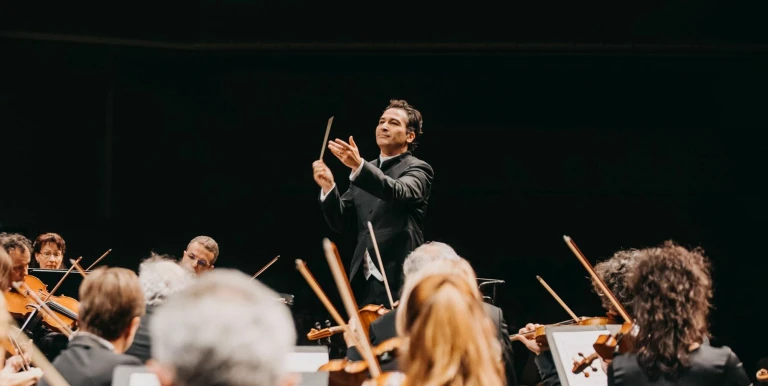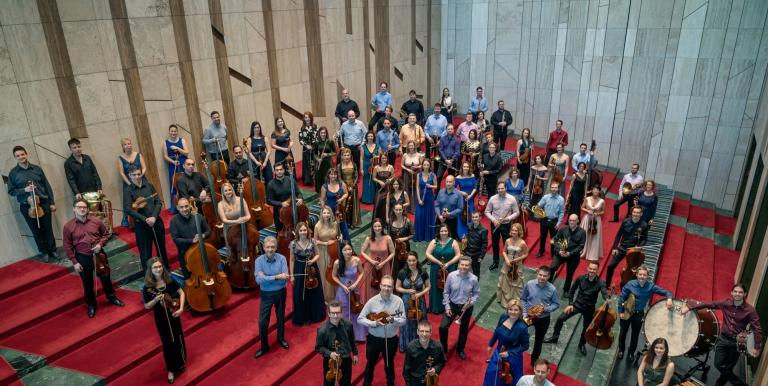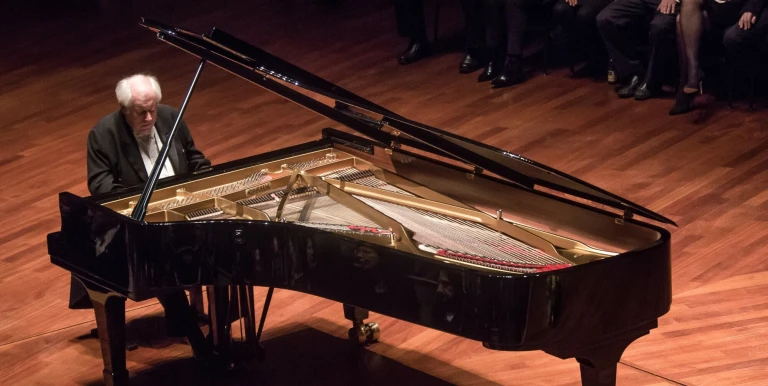The program was cancelled
The program was cancelled
The concert originally planned for 29 November 2018 has been rescheduled. Purchased tickets are season tickets valid for the performance on 22 February 2019.
Conductor:
Featuring:
Veress
Threnos - in memoriam Béla Bartók
Liszt
Piano Concerto No. 1 in E major, S. 124
Liszt
Faust Symphony, S. 108
The young pianist Louis Schwizgebel joins us from Switzerland to perform Liszt's Piano Concerto No. 1 in E major. 'He produced a lovely lyrical dance, ballet-like, caressing the strings with the keyboard hammers yet maintaining crystal clear separation in the notes in even the most fleeting runs.' (Bachtrack, April 2017)
Sándor Veress (1907-1992), is one of the most important members of the generation of Hungarian composers who followed Bartók; he was an experimental and inventive composer who, like Bartók, had to leave his homeland. And, just like Bartók, Veress was born in Transylvannia. Threnos was written in 1945 in memory of Bartók, shortly after the composer's death.
As most schoolchildren know (at least in Hungary), Franz Liszt began his musical career as a pianist, and it was in this guise that he made his name throughout Europe before becoming a composer. Liszt's piano concertos are the finest examples of the confluence of the two sides of his talent, as he both wrote and performed these works. Liszt put the first rough sketches of what would become his E major piano concerto down on paper in his youth around the year 1830, though he only began to elaborate the composition in more detail in his Weimar period. He worked on the piece with great professional care and self-criticism, writing no fewer than five variations over time. The premiere eventually took place in Weimar on 17 February 1855: Liszt played the piano solo himself with Berlioz, who was visiting the city, as conductor. The four movements of the piece merge into one unified whole.
Liszt strived to show everything in his music: the worlds of nature, poetry, history, faith and philosophy. His ambition to express everything through music led him to Faust and the creation of one of his most important and influential pieces of music, the Faust Symphony.
Presented by: Hungarian National Philharmonic
-
We wish to inform you that in the event that Müpa Budapest's underground garage and outdoor car park are operating at full capacity, it is advisable to plan for increased waiting times when you arrive. In order to avoid this, we recommend that you depart for our events in time, so that you you can find the ideal parking spot quickly and smoothly and arrive for our performance in comfort. The Müpa Budapest underground garage gates will be operated by an automatic number plate recognition system. Parking is free of charge for visitors with tickets to any of our paid performances on that given day. The detailed parking policy of Müpa Budapest is available here.










